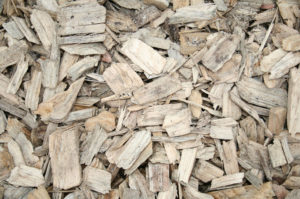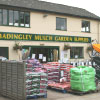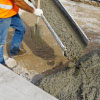Ten Benefits of Using Mulch
 Mulch isn’t essential for a healthy garden; however, it brings so many benefits that many gardeners wouldn’t be without it. In this article, established garden mulch suppliers Madingley Mulch explore ten advantages of its use.
Mulch isn’t essential for a healthy garden; however, it brings so many benefits that many gardeners wouldn’t be without it. In this article, established garden mulch suppliers Madingley Mulch explore ten advantages of its use.
Cuts Down the Need for Weeding
Mulch saves time for gardeners as it reduces weed growth. To make it effective for this purpose, however, it is important not to spread the mulch too thinly. As a rough guide small chips, such as decorative mulch, should be layered one to two inches deep, and this should be double the depth for larger chips.
Protects in All Weathers
The great British weather can be frustrating for gardeners as it’s hard to predict what it will do next. It is not unheard of to have rain, hail, sunshine and wind – all in the space of 24 hours. Mulch provides a protective layer that will guard against these temperature extremes. It’s best to apply it in mid-spring, however, as any earlier could prevent the soil from warming up.
Reduces the Need for Watering
Another way mulch benefits gardeners is that it reduces the need for watering, which is particularly beneficial during droughts and hosepipe bans. It increases the ability to hold water in certain types of soil, such as sandy soils, and prevents soil evaporation – in some cases by as much as 50 per cent. If you are applying mulch around new plants, a top tip is to make sure they are well watered first.
Frees up More Time
Another bonus of mulching is that you don’t have to mow the edges around trees, bushes or flower beds, which is another time saver. Digging a trench between the grass and the mulch looks neater and makes it easier to mow the lawn. Our rustic mulch is the recommended choice around trees and bushes.
Conditions the Soil
Mulch is a popular garden buy as it is a natural product that breaks down over time, nourishing the soil with organic material. Bark mulch can be used around trees, shrubs, fruit and perennials (plants that live more than 24 months) where it can be left undisturbed. It is best not to use it around vegetables as the soil in this area needs more cultivation and so will be disturbed more frequently.
Creates a Habitat for Micro-Organisms
Bark and wood mulch create food for worms and micro-organisms, so they thrive. These micro-organisms benefit plants as they help to loosen the soil which enhances the flow of water and air, stimulating root growth. It is important to place the mulch on top of the soil, rather than mix it within the soil, or it will disrupt the soil nitrogen which has a negative effect on plant growth.
Looks Attractive
Mulch looks attractive and gives gardens a more polished appearance. The trick is not to pile the mulch above the lawn or pathway as it can blow onto these areas and affect the appearance of your garden. Instead, the soil level should be below the lawn or pathway, and levelled with the mulch, or better still, build a trench between the soil and lawn edge to create a raised bed effect.
Has Multi-Purpose Use
Mulch is not just used around plants, it can also make attractive walkways for parks, gardens and recreational facilities. Again, it is important to have a defined pathway edge so the chips don’t scatter over the lawn and spoil the definition. As garden mulch suppliers we recommend our pathway chips for walkways.
It’s Economical
We sell a host of different mulches, but one of the bonuses of bark mulch is that it breaks down much slower than wood chips. Bark mulch only has to be replenished every two to three years, which saves money in the long run as it doesn’t have to be topped up so often.
Mulches have a Cushioning Effect
Dense or compact earth has a negative effect on plant growth as it reduces soil productivity and plant growth. However, mulch serves as a barrier when walked on and minimises soil compaction around your plants, particularly when the soil is wet. And, it helps prevent muddy boots too!
For more information and advice about mulches, or to order, contact Cambridgeshire based Madingley Mulch direct on 01954 212144, or click on the link above.
Back to blog



